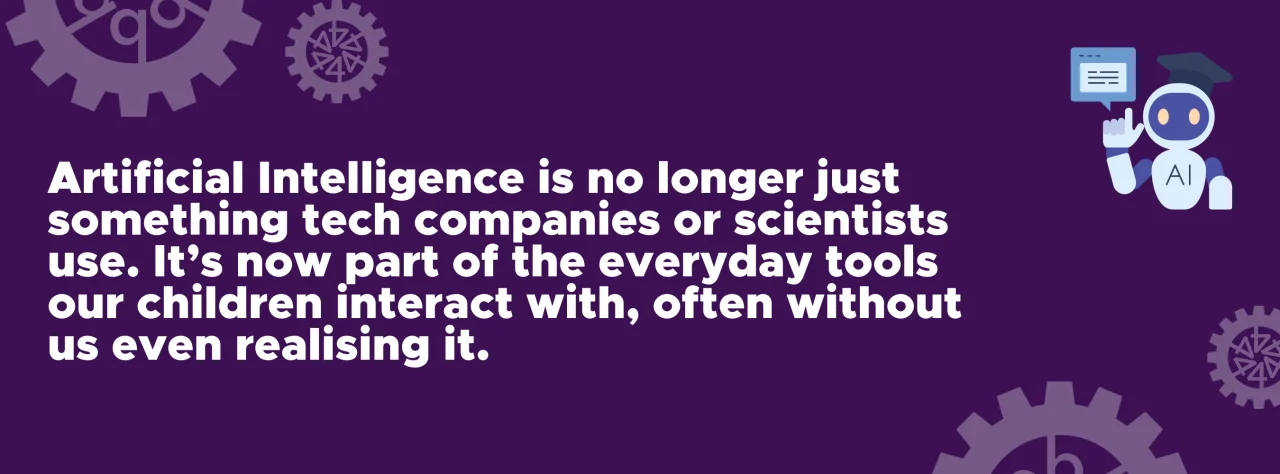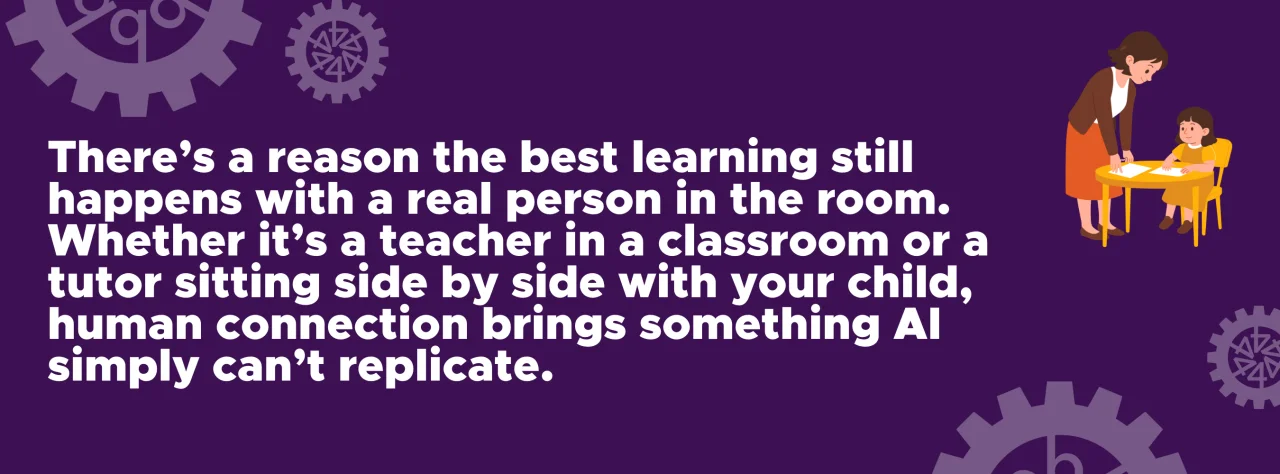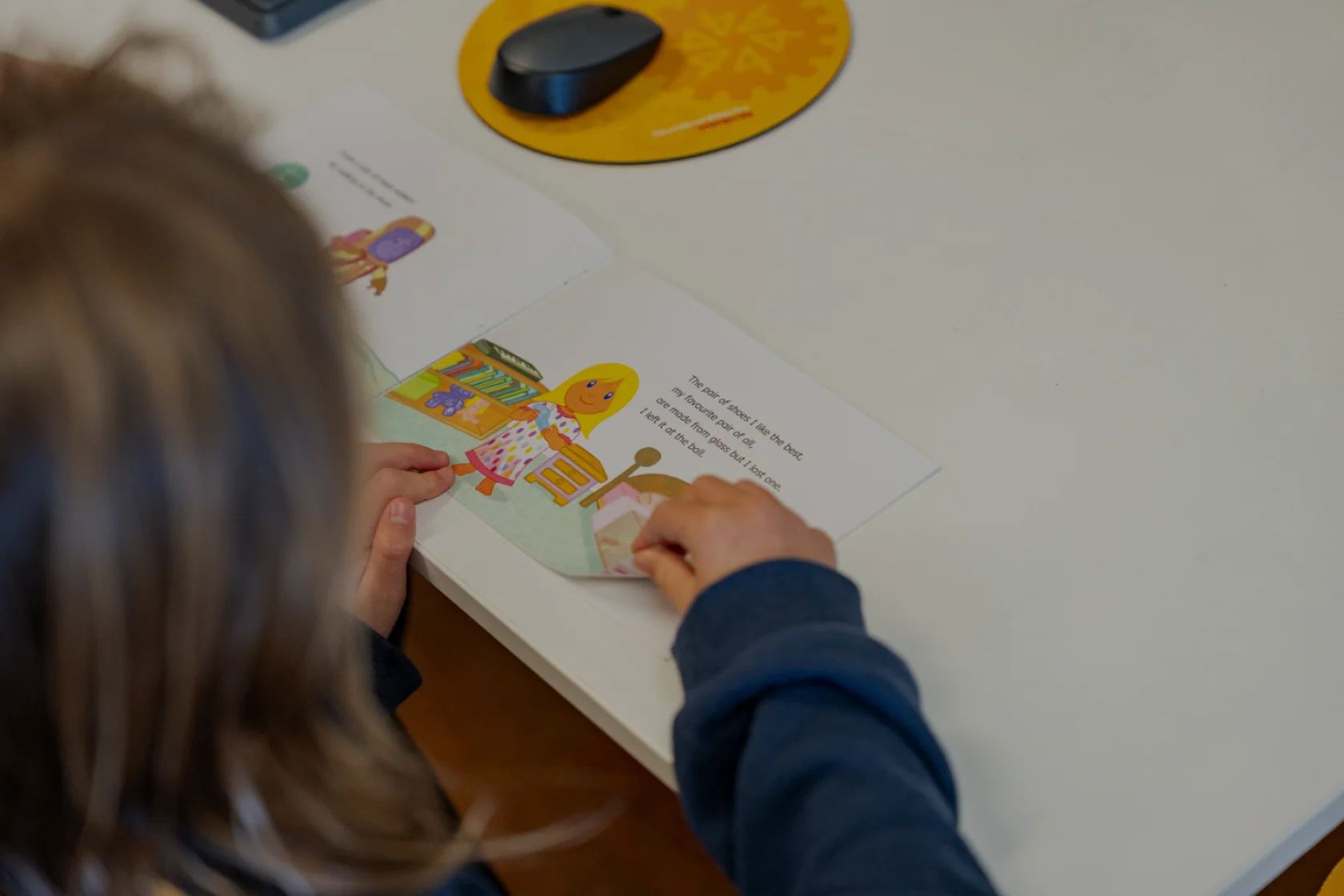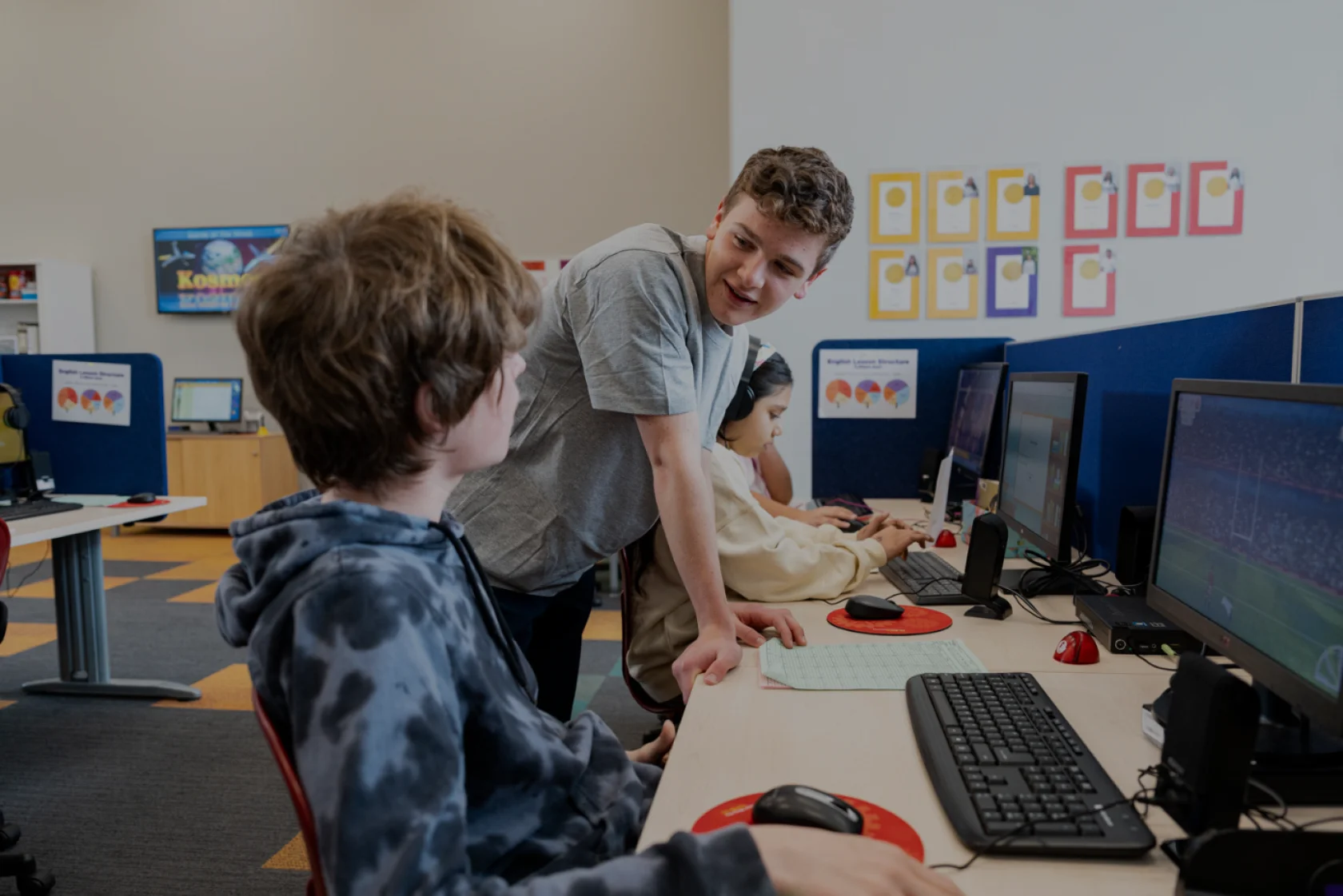23rd November 2025
How AI Is Changing the Way Your Child Learns and How to Keep Up
If it feels like the world is moving faster than ever, you’re not alone. As parents, we’re constantly trying to stay one step ahead, and when it comes to how our children learn, the pace of change can be dizzying. One of the biggest shifts in recent years is the rise of Artificial Intelligence (AI) in education.
From homework apps that solve equations instantly to AI-powered writing assistants and virtual tutors, our children are growing up in a world where learning support is just a few clicks away. It’s incredible in many ways, but it also raises an important question: What role should AI play in your child’s learning, and how do you, as a parent, keep up?
Let’s explore how AI is changing the learning landscape, where it helps, where it falls short, and why the human touch still matters more than ever.
 The Rise of AI in Learning
The Rise of AI in Learning
Artificial Intelligence is no longer just something tech companies or scientists use. It’s now part of the everyday tools our children interact with, often without us even realising it. Educational apps can now analyse your child’s performance, spot gaps in their understanding, and adapt the content to better suit their needs. Some platforms even offer real-time feedback on writing or maths problems, encouraging students to correct their mistakes on the spot.
At first glance, this sounds like a dream. A personalised tutor available 24/7? What's not to love?
And to be fair, there are genuine benefits. AI tools can make learning more accessible and flexible. They can support revision at home, explain tricky concepts in new ways, and even make lessons more interactive and engaging. Especially for quick questions or basic skill practice, AI can be incredibly helpful.
The Limits of AI: Why Quick Answers Don’t Equal Deep Understanding
While AI can deliver fast feedback and convenient explanations, it often promotes surface-level learning. That means your child might be getting the right answers, but without truly understanding why those answers are correct.
For example, a maths app can show your child how to solve a problem step-by-step, but if they’re just copying the method without really engaging in the logic, they’re missing a vital part of the learning process. Similarly, AI writing tools can tidy up spelling and grammar, but they won’t help your child develop a personal writing style, build confidence, or find their voice.
At its core, AI is a tool, a very smart one, but it doesn’t replace the thinking, questioning, and problem-solving that real learning requires.
Even more importantly, it can’t replace the emotional side of learning: the encouragement, the accountability, the connection. These are the things that help children grow in confidence, stay motivated, and build a love of learning that lasts.
 Why Human Connection Still Matters Most
Why Human Connection Still Matters Most
There’s a reason the best learning still happens with a real person in the room. Whether it’s a teacher in a classroom or a tutor sitting side by side with your child, human connection brings something AI simply can’t replicate.
At NumberWorks’nWords, we see this every day. Children thrive when they’re guided by someone who understands how they learn, notices when they’re feeling stuck, and knows how to explain things in a way that makes sense to them. Our tutors celebrate the wins, encourage the effort, and build the kind of learning foundations that support long-term success.
Where AI offers content, people offer context. We can pick up on non-verbal cues, adapt to mood and motivation, and offer emotional support alongside academic help. In other words, we don’t just teach, we connect. And in a world that’s becoming increasingly automated, that kind of support is more valuable than ever.
Supporting Your Child in a Digital World
So where does this leave you as a parent? The good news is that you don’t need to become an AI expert to support your child’s learning. In fact, the most powerful thing you can do is stay involved and curious.
Talk to your child about the tools they’re using. Ask how they’re learning, not just what they’re learning. Encourage them to explain things in their own words, and remind them that it’s okay not to know everything instantly. Real learning takes time, effort, and sometimes, a little struggle.
AI can absolutely play a role in supporting learning at home. It can be a helpful revision tool, a way to practise skills independently, or a fun way to explore new topics. But for meaningful progress, especially in core subjects like maths and English, nothing beats the hands-on, personalised approach of expert tuition.
Conclusion
As the role of AI in education continues to grow, one thing remains constant: our children need more than just the answers; they need the skills. Critical thinking, resilience, creativity, and communication are the qualities that will prepare them for a future we can’t fully predict.
And these qualities are nurtured best through real relationships, consistent support, and meaningful practice.
At NumberWorks’nWords, we embrace innovation, but we never forget what works. Our tutors use modern tools where appropriate, but always in the context of human connection and tailored teaching. Because we know that when a child is supported by someone who believes in them, understands them, and challenges them, they don’t just learn more, they learn better.
So if you're looking to support your child’s learning journey, not just this term, but for life, we’re here to help. At NumberWorks’nWords, we build more than just skills. We build confidence, curiosity, and a lifelong love of learning.

More news articles
18th January 2026

How to Reset Routines After the Christmas Holidays
Read more5th December 2025

How to Prevent the Summer Learning Slide
Read more24th November 2025

Are Children Falling Out of Love with Reading?
Read more23rd November 2025

How AI Is Changing the Way Your Child Learns and How to Keep Up
Read more